Bob Mackin

B.C. Minister of Finance Brenda Bailey at a pre-budget news conference in Victoria. (BC Gov/Flickr)
“We have to step that deficit down. Yes, we’ve had to repace it this year,” Bailey said. “But we are stepping it down over time through structural changes, and that will get us there.”
Premier David Eby’s NDP government pared the nearly $12 billion deficit to $9.61 billion according to the third quarter report, but Bailey is projecting it will balloon to $13.3 billion before March 31, 2027.
“No one worries more about the deficit than I do,” Bailey said.
The government expected to bring in $85.5 billion, but spend $98.83 billion in the new fiscal year. The provincial debt is predicted to reach $183.37 billion.
Bailey vows the deficit will go down again, to $12.17 billion next year and $11.44 billion the year after.
Which is hardly consolation for those who remember that John Horgan gift-wrapped a $5.7 billion surplus for Eby when he handed him power in November 2022.
Bailey is heralding a plan to reduce full-time equivalent (FTE) positions in the public service by 15,000. Right-sizing is what she called it.
Bailey said 2,500 of the FTE cuts will come from central government. She provided no details about the rest. A spreadsheet shows the government added nearly 11,000 FTEs between the 2019 and 2024 fiscal years. The 47,069 FTEs in 2026-2027 are scheduled to shrink to 44,166 by early 2029.
During a news conference, Bailey said the budget plans on reducing the public service by “15,000 people” and “15,000 workers.”
But the Ministry of Finance’s own budget publication includes this disclaimer about FTEs: “This does not equate to the physical number of employees.”
In total, $757 million more tax revenue is forecast for the new fiscal year, $1.52 billion next year and $1.94 billion in year three. Mainly from the increase in the basic income tax rate from 5.06% to 5.6% and expansion of the Provincial Sales Tax (PST).
A hint about why Bailey did not perform the traditional pre-budget shoe-fitting photo op.
PST exemptions are on the way out for goods and services “once deemed essential but not as commonly used anymore.” Those include basic cable TV and land line telephones, and clothing and footwear repair.
No longer exempt will be professional services. Such as accounting, bookkeeping, architectural, geoscientist and engineering, commercial real estate fees and security and private investigation services.
Taxes on real estate are going up. The speculation and vacancy tax for foreign owners and untaxed worldwide earners goes to 4% (up from 3%) for the 2027 tax year.
Also coming next year: The additional school tax rate on high-valued homes will nudge upward from 0.2% to 0.3% for homes valued at $3 million to $4 million and 0.4% to 0.6% for those higher than $4 million.

Minister of Finance Brenda Bailey in the B.C. Legislature on Feb. 17, 2026. (BC Gov/Flickr)
It’s official, the cost of eliminating the carbon tax at the pumps last year will be $2.08 billion this year.
The cost of renovations at B.C. Place Stadium to host seven matches during FIFA World Cup 26 remains $108.5 million. The government says it spent $79 million by the end of 2025 and is on track to stay within the budget. The first local match is June 13.
Meanwhile, the Ministry of Tourism, Arts, Culture and Sports is sending B.C. Pavilion Corporation $9.92 million in the new fiscal year to reduce its losses.
Elections BC’s budget will almost double to $28 million. That is not enough to pay for a snap election, but it is an eyebrow-raiser.
Eby’s office budget hit $17.6 million last year. It will have $15.3 million to spend in the new budget.
Bailey greeted the media in Victoria with a preamble honouring the victims and survivors of the Feb. 10 mass-shooting in Tumbler Ridge. The deceased suspect battled mental illness and addiction and started identifying as a girl six years ago.
Bailey’s budget cuts Child and Youth mental health services by $3 million to $127.6 million and youth justice by $2 million to $53.6 million.
Overall, however, the Ministry of Children and Family Development is getting a sizeable increase of more than $400 million to $2.81 billion.
Reporters in the Vancouver budget lockup, in the cabinet boardroom in the World Trade Centre, were not allowed to ask questions during Bailey’s news conference. They could only watch and listen to the Zoom feed.
Breaking from tradition, reporters were not provided an advance copy of Bailey’s budget speech.
Subscribe to theBreaker.news on Substack. Find out how: Click here.
Bob Mackin
B.C. Minister of Finance Brenda Bailey








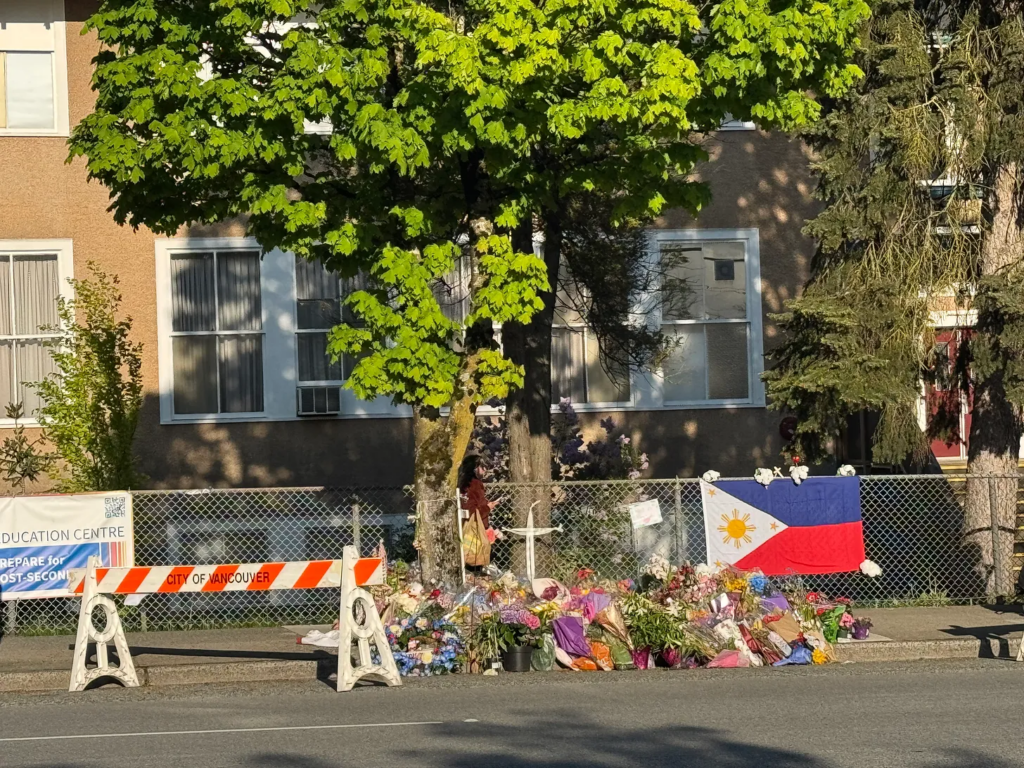
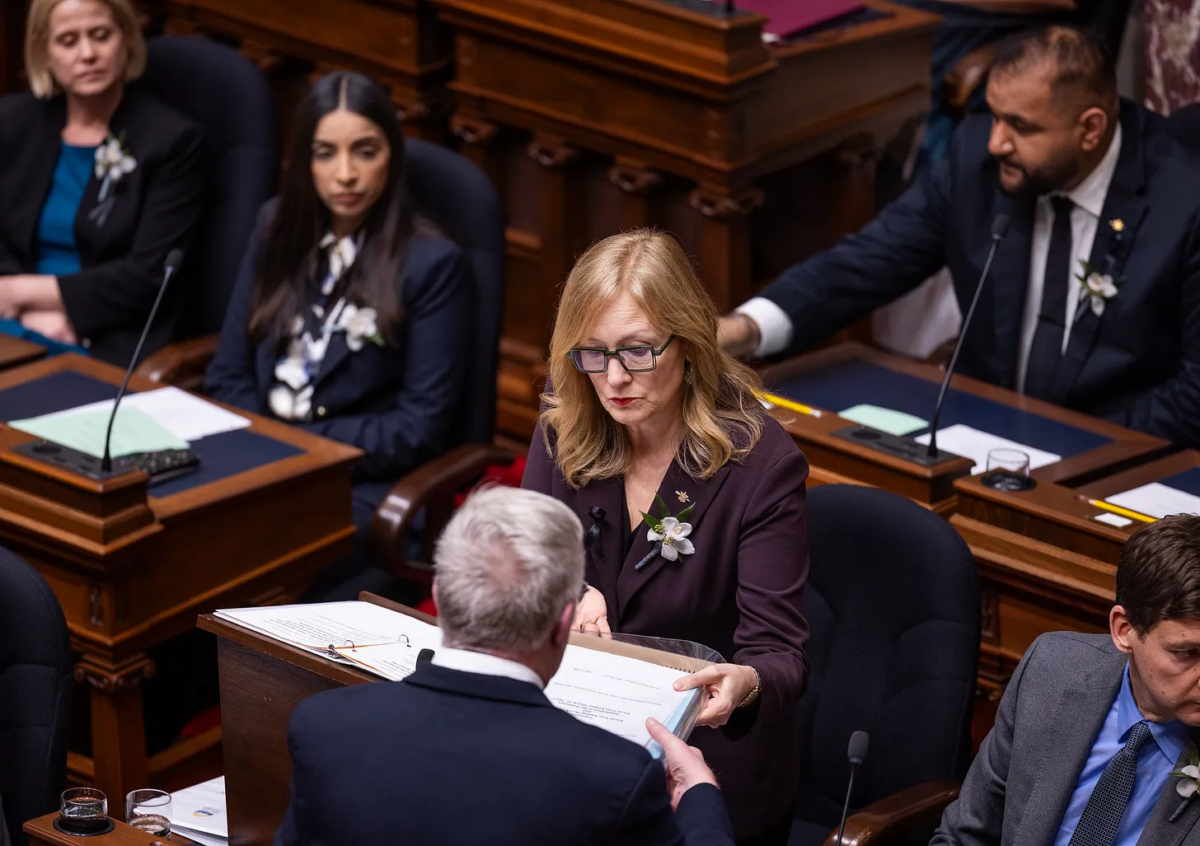



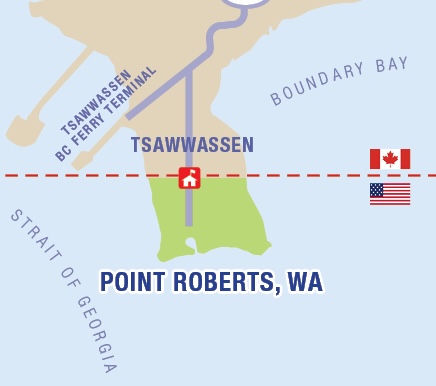



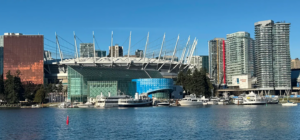

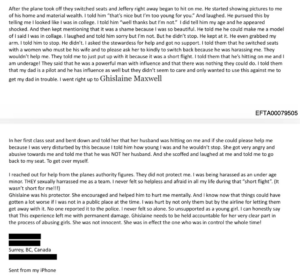


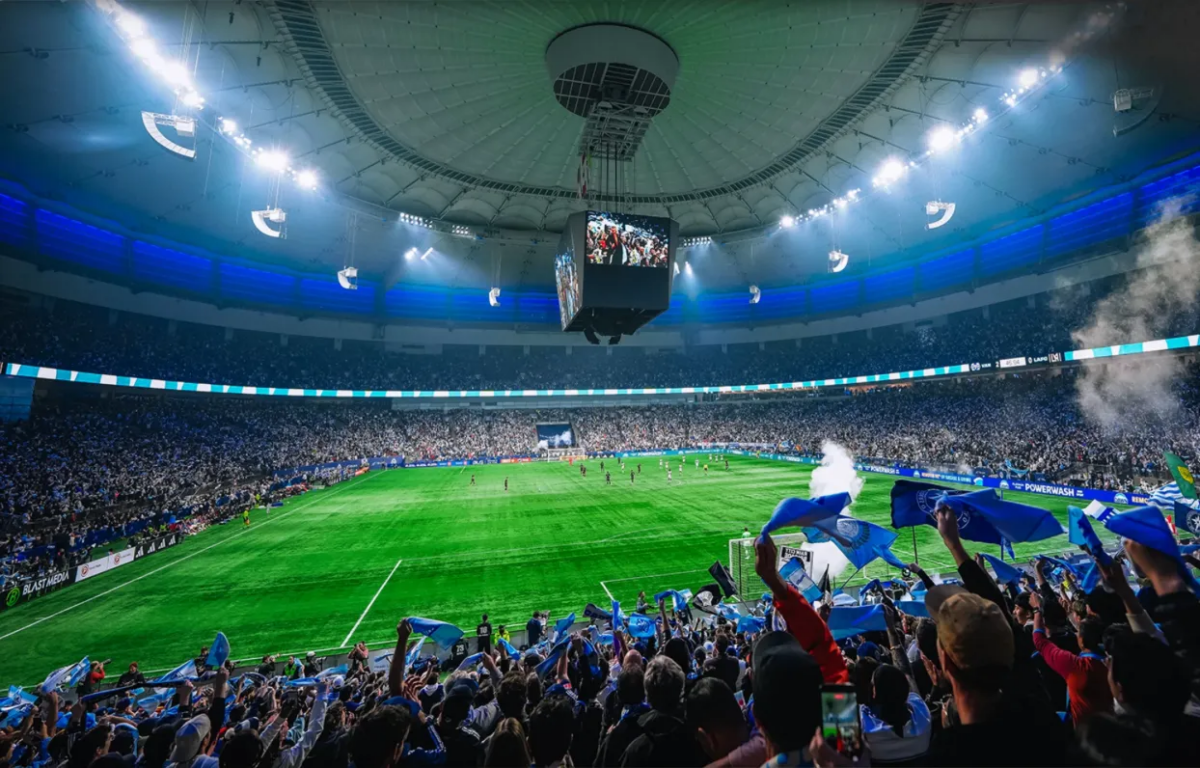

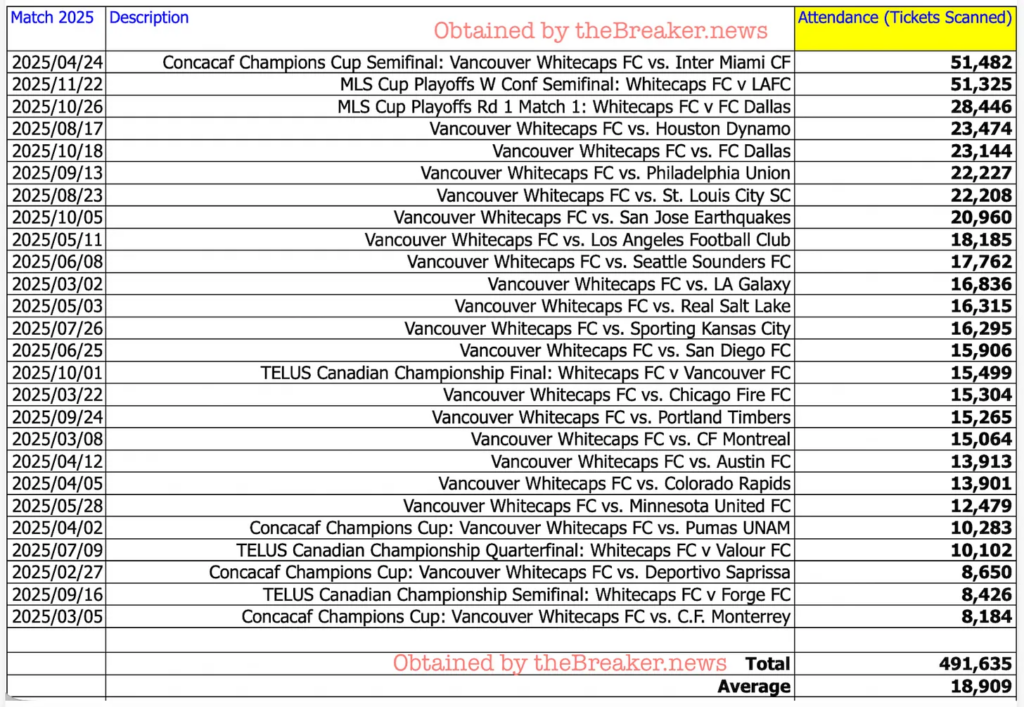 Messi was a no-show for a league match on May 25, 2024 when the Whitecaps drew a season-high 48,161. That also broke the club’s previous high turnout of 25,832 when the Seattle Sounders visited on Sept. 15, 2018.
Messi was a no-show for a league match on May 25, 2024 when the Whitecaps drew a season-high 48,161. That also broke the club’s previous high turnout of 25,832 when the Seattle Sounders visited on Sept. 15, 2018.